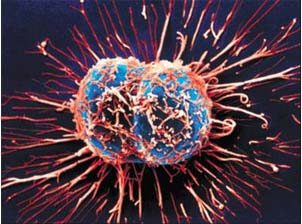Novel approach to turn skin cells into stem cells without cancer risk
 Washington, March 27: American scientists have made a significant advance in finding a way to endow human skin cells with embryonic stem cell-like properties without inserting potentially problematic new genes into their DNA.
Washington, March 27: American scientists have made a significant advance in finding a way to endow human skin cells with embryonic stem cell-like properties without inserting potentially problematic new genes into their DNA.
Dr. James A. Thomson of the University of Wisconsin-Madison, whose team was supported in part by the National Institute of General Medical Sciences, claims that this is the first time that any research group has endowed skin cells with the capacity to develop into any of the roughly 220 types of cells in the body—a process known as induced pluripotency—without using viruses.
He says that this work attains significance considering the fact that viruses can insert potentially harmful genes into the cells'' genetic material and trigger cancer.
Thomson''s new method imports the necessary genes on a small circle of DNA known as a plasmid.
Over time, the plasmid disappears naturally from the cell population, avoiding the danger posed by using viruses.
Pluripotent cells are viewed as invaluable to studies of normal and disease processes and to understanding the effects of certain drugs.
Thomson says that such cells may come to be used therapeutically in future, and replace the cells affected by diseases like Alzheimer''s and Parkinson''s or lost to traumatic injuries. (ANI)